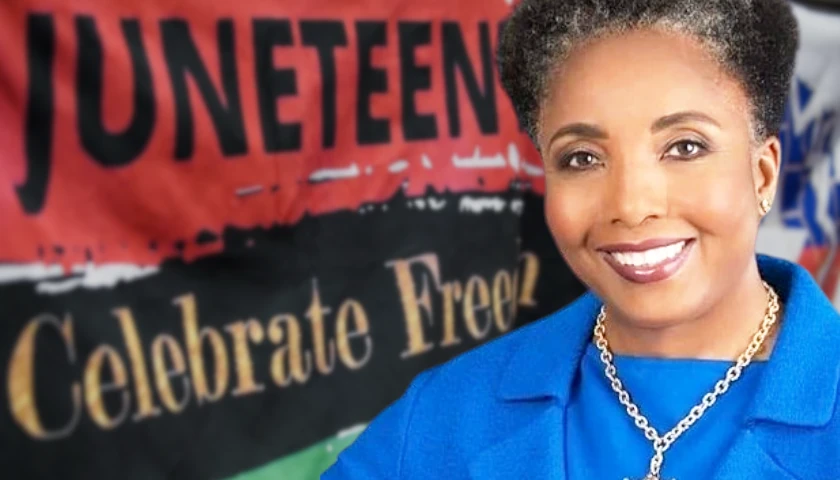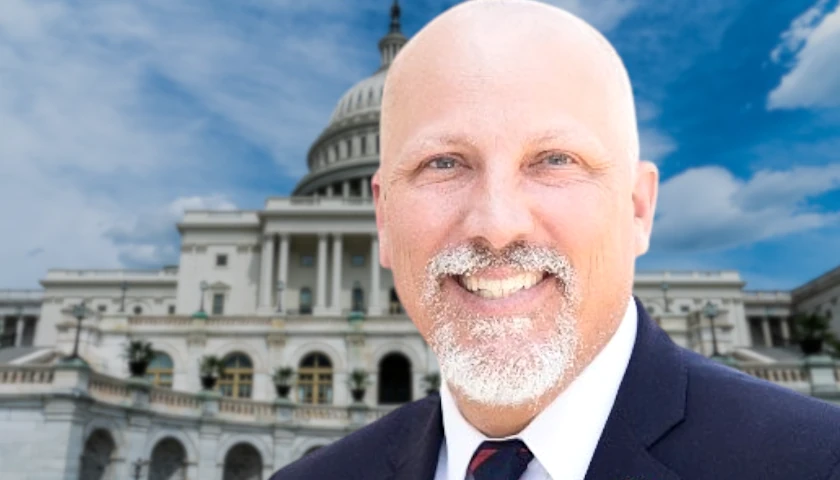by Dr. Carol M. Swain
How did Juneteenth, once just a regional celebration, become a federal holiday instead of the far more significant Emancipation Proclamation? The latter freed over 3 million slaves, including the ones in Galveston, Texas that didn’t know of their freedom. Let’s walk through some of the facts of the latter’s superiority over the former before grappling with the politics of our times.
President Abraham Lincoln issued The Emancipation Proclamation on January 1, 1863. It never became a federal holiday despite the wishes of some organizations. The National Association for the Advancement of Colored People (NAACP), presented a proposal in 2014 seeking to establish “A National Holiday Commemorating Emancipation of the Slaves” for the “history and story” to be “properly researched and archived for the American People. It acknowledged the importance of the document for all Americans and sought for the holiday to be celebrated on January 1 of each year as a Jubilee. The NAACP resolution was presented during the Obama Administration. It was written before the word “slaves” was swapped for “enslaved peoples.”
As always, politics lurks behind every congressional action, no matter how noble the intent. I contend that Juneteeth got became a federal holiday while the Emancipation Proclamation didn’t because Democrats in Congress were not about to draw attention to the fact that it was a president of the anti-slavery party — the Republican Party — that secured emancipation. To the Democrats, George Floyd’s unfortunate death was the crisis that couldn’t (and didn’t) go to waste. His death created the perfect stormy atmosphere and pressure to take action. That would explain the irony that was the addition of Juneteenth as a proposed national holiday in President Donald J. Trump’s 2020 “The Platinum Plan” for black Americans. Since Trump did not return to office, President Joe Biden seized the opportunity and choose Juneteenth rather than the NAACP’s explicit preference to celebrate the Emancipation Proclamation.
Juneteenth’s supposed bipartisan support was belied by the critical race theory language tucked into the resolution:
“NOW, THEREFORE, I, JOSEPH R. BIDEN JR., President of the United States of America, by virtue of the authority vested in me by the Constitution and the laws of the United States, do hereby proclaim June 19, 2023, as Juneteenth Day of Observance. I call upon the people of the United States to acknowledge and condemn the history of slavery in our Nation and recognize how the impact of America’s original sin remains. I call on every American to celebrate Juneteenth and recommit to working together to eradicate systemic racism and inequity (emphasis added) in our society wherever they find it. “
System racism and inequity is familiar language we associate with critical race theory and diversity, equity, and inclusion.
If we want to be true to history and have an educated populace, it will make a lot of sense for the national government to honor the significance of Lincoln’s Proclamation even while lamenting the fact that hundreds of thousands of slaves were unaware of the proclamation. Juneteenth and the Emancipation of Proclamation should be rolled into one holiday celebration that should take place in January, the month we celebrate Dr. Martin Luther King’s birthday and we should celebrate the combined holiday by reading President Lincoln’s Emancipation Proclamation and discussing it with our children. This nationally unifying document reads in part:
“That on the first day of January, in the year of our Lord one thousand eight hundred and sixty-three, all persons held as slaves within any State or designated part of a State, the people whereof shall then be in rebellion against the United States, shall be then, thenceforward, and forever free; and the Executive Government of the United States, including the military and naval authority thereof, will recognize and maintain the freedom of such persons, and will do no act or acts to repress such persons, or any of them, in any efforts they may make for their actual freedom.”
By contrast, the document inspiring Juneteeth, General Gordon Granger order (No. 3), only addresses the people of Texas:
“The people of Texas are informed that, in accordance with a proclamation from the Executive of the United States, all slaves are free. This involves an absolute equality of personal rights and rights of property between former masters and slaves, and the connection heretofore existing between them becomes that between employer and hired labor.”
We can return to my initial question of how Juneteenth became the national holiday rather than the far more historically significant Emancipation of Proclamation. It is a testament to the politics of our nation. However it is redeemable, if the political will is there to combine the two and celebrate the national holiday as a teaching moment.
– – –
Dr. Carol M. Swain is a Senior Fellow at the Institute for Faith and Culture and is the author of The Adversity of Diversity: How the Supreme Court’s Decision to Remove Race from College Admissions Criteria will Doom Diversity Programs (co-authored with Mike Towle).
Photo “Carol Swain” by Carol Swain. Background Photo “Juneteenth Celebration” by USAG- Humphreys. CC BY 2.0.




